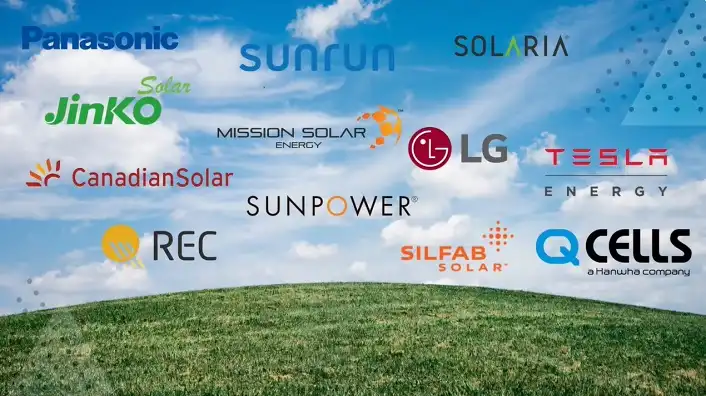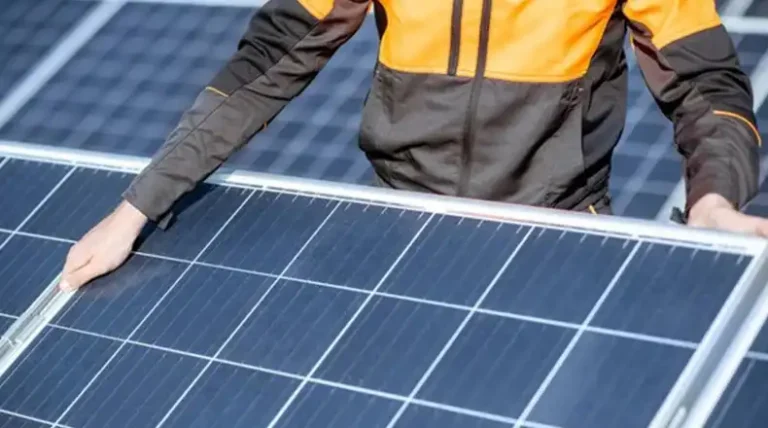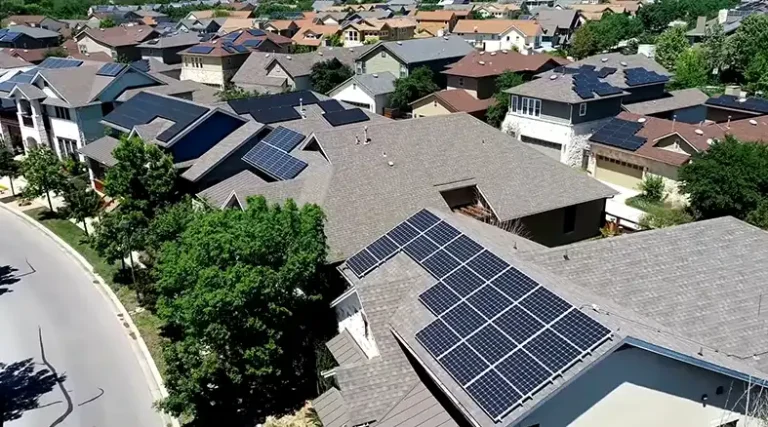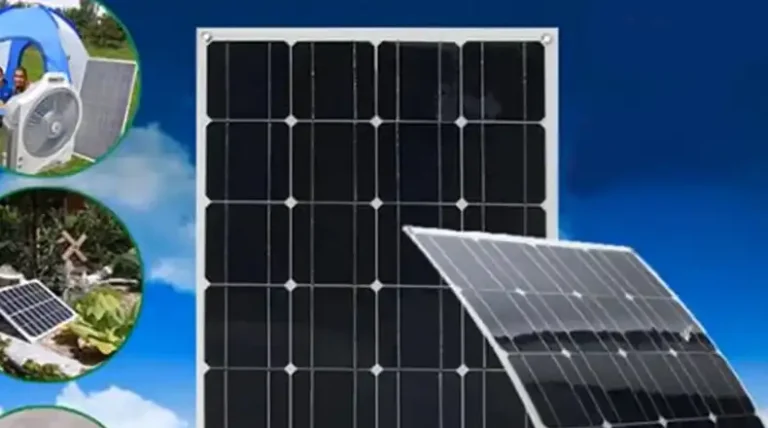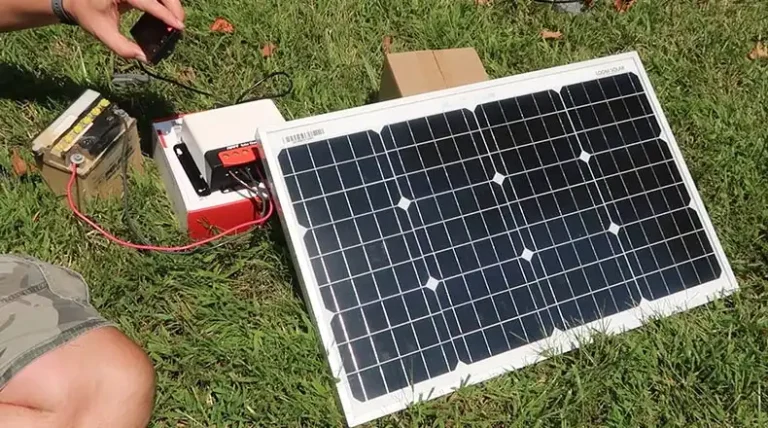Do You Need Wi-Fi for Solar Panels? Explained
In today’s world, we cannot move an inch without the internet. From mobile devices to home accessories like lights, and fan AC, we need WiFi to control them remotely. As energy conservation and sustainable living are becoming increasingly crucial, solar panels also have emerged as a game-changer. Now the question is – do you need WiFi for your solar panels?
In short, the answer is: “No”. The solar panel converts the sun’s rays into electricity and for this process, it doesn’t need WiFi or any kind of internet connection.
While Wi-Fi is not an absolute necessity for basic solar panel functionality, some solar panels allow WiFi integration that can provide numerous advantages and enhanced control over your solar energy system. To learn more about this topic stay with us till the end.
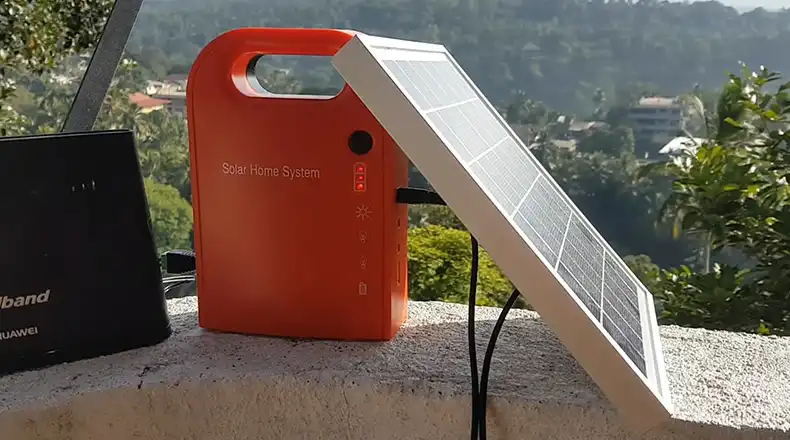
Is WiFi Necessary for Solar Panel Functionality?
To understand whether you need WiFi for your solar panel or not, you have to know how solar panels work.
Solar panels, also known as photovoltaic (PV) panels, are devices that convert sunlight into electrical energy through a process called the photovoltaic effect. This effect occurs when photons from the sun’s rays strike the solar panel’s semiconductor materials, typically made of silicon.
The solar panel is composed of multiple solar cells, which are the fundamental building blocks that convert sunlight into electricity. Each solar cell consists of two layers of semiconductor material, typically silicon, that are treated with different types of impurities to create an electric field.
When sunlight hits the solar cell, the photons from the sun’s rays knock electrons loose from the semiconductor material, allowing them to flow freely through the electric field created by the two layers. This flow of electrons generates an electrical current, which is then captured and channeled through conductive wires and components within the solar panel.

The generated electrical current is direct current (DC), which needs to be converted into alternating current (AC) for most household and commercial applications. This conversion is typically done by an inverter, which is either integrated into the solar panel system or installed separately.
Solar panels are designed to maximize their exposure to sunlight, which is why they are typically installed on rooftops or in open areas with minimal shade. The angle and orientation of the solar panels can also be adjusted to optimize their energy production based on the sun’s position and seasonal variations.
It’s important to note that while solar panels can generate electricity independently, most residential and commercial solar installations include additional components, such as batteries for energy storage, charge controllers, and monitoring systems. These components work together to ensure efficient energy production, storage, and distribution.
While Wi-Fi connectivity is not essential for the basic functionality of solar panels, it can provide valuable features and benefits, such as remote monitoring, energy management, and system optimization, as discussed in the later sections of the article.
The Advantages of Wi-Fi Integration
While Wi-Fi is not mandatory for solar panels to function, integrating it into your solar energy system can provide several advantages:
1. Remote Monitoring and Control
One of the primary benefits of Wi-Fi integration is the ability to monitor and control your solar panel system remotely. With Wi-Fi connectivity, you can access real-time data on energy production, consumption, and performance metrics from any internet-enabled device, such as a smartphone or computer.
This remote monitoring capability allows you to:
- Track energy generation and usage patterns
- Identify potential issues or system faults
- Adjust settings and optimize performance
- Receive alerts and notifications about system status
2. Energy Management and Optimization
Wi-Fi-enabled solar panel systems can be integrated with smart home automation platforms, allowing for seamless energy management and optimization. By connecting your solar panels to your home’s Wi-Fi network, you can monitor and control energy consumption, prioritize appliance usage based on energy availability, and even automate certain functions for increased efficiency.
3. Software Updates and Upgrades
In today’s rapidly evolving technological landscape, software updates and upgrades are crucial for ensuring optimal performance and security. Wi-Fi connectivity allows for easy, over-the-air updates to be delivered to your solar panel system, ensuring that you’re always running the latest firmware and software versions.
4. Data Analytics and Insights
With Wi-Fi integration, your solar panel system can collect and transmit valuable data to cloud-based platforms or local servers. This data can be analyzed to provide insights into energy production patterns, system performance, and potential areas for improvement. Such insights can help you make informed decisions about future upgrades or adjustments to your solar setup.
Potential Drawbacks of Wi-Fi Integration
While Wi-Fi integration offers numerous advantages, it’s important to consider potential drawbacks as well:
- Cost: Adding Wi-Fi connectivity to your solar panel system may incur additional costs for hardware, software, and installation.
- Security Concerns: As with any internet-connected device, Wi-Fi-enabled solar panel systems may be vulnerable to cyber threats if not properly secured. Proper security measures, such as strong passwords and encryption, are essential to mitigate these risks.
- Dependency on Internet Connectivity: While Wi-Fi is not required for basic solar panel functionality, certain features and capabilities may become limited or unavailable during internet outages or connectivity issues.
- Complexity: Integrating Wi-Fi and managing connected devices can add an extra layer of complexity to your solar panel setup, potentially requiring additional setup, configuration, and maintenance.
Should You Use WiFi Integrated Solar Panel System or Not?
The decision to incorporate Wi-Fi into your solar panel system ultimately depends on your specific needs, preferences, and budget. If remote monitoring, energy management, and advanced features are priorities, then Wi-Fi integration may be a worthwhile investment. However, if you’re primarily interested in generating and using solar energy without advanced capabilities, a basic solar panel setup without Wi-Fi is sufficient.
It’s essential to carefully evaluate your requirements, weigh the pros and cons, and consult with solar professionals to determine the best solution for your unique situation.
Summary
To summarize, while Wi-Fi connectivity is not an absolute requirement for the basic functionality of solar panels, integrating it into your solar energy system can unlock a wealth of benefits, including remote monitoring, energy management, software updates, and valuable data insights. Remember, whether you opt for a Wi-Fi-enabled setup or a more basic solar panel system, the true power lies in fetching the sun’s energy and contributing to a more sustainable future. If you have any further questions or need additional guidance, don’t hesitate to leave a comment below. We’re here to support you on your journey towards eco-friendly living and energy independence. Thank you for taking the time to explore this topic, and we wish you all the best in your solar energy endeavors!
FAQs
Can I Monitor My Solar Panel System Remotely Without Wi-Fi?
Without Wi-Fi connectivity, remote monitoring of your solar panel system may be limited or unavailable. Wi-Fi integration allows you to access real-time data and control your system from any internet-enabled device.
Is Wi-Fi Integration Necessary for Solar Panel Maintenance?
While Wi-Fi integration is not strictly necessary for solar panel maintenance, it can provide valuable insights and alerts that can help identify potential issues or system faults, allowing for proactive maintenance and repairs.
How Secure Are Wi-Fi-Enabled Solar Panel Systems?
The security of Wi-Fi-enabled solar panel systems depends on the measures taken to protect them from cyber threats. Proper security protocols, such as strong passwords, encryption, and regular software updates, are essential to mitigate potential vulnerabilities.
Can Wi-Fi Integration Improve the Efficiency of My Solar Panel System?
Yes, Wi-Fi integration can potentially improve the efficiency of your solar panel system by enabling features like energy management, load balancing, and real-time performance monitoring, which can help optimize energy usage and identify areas for improvement.

